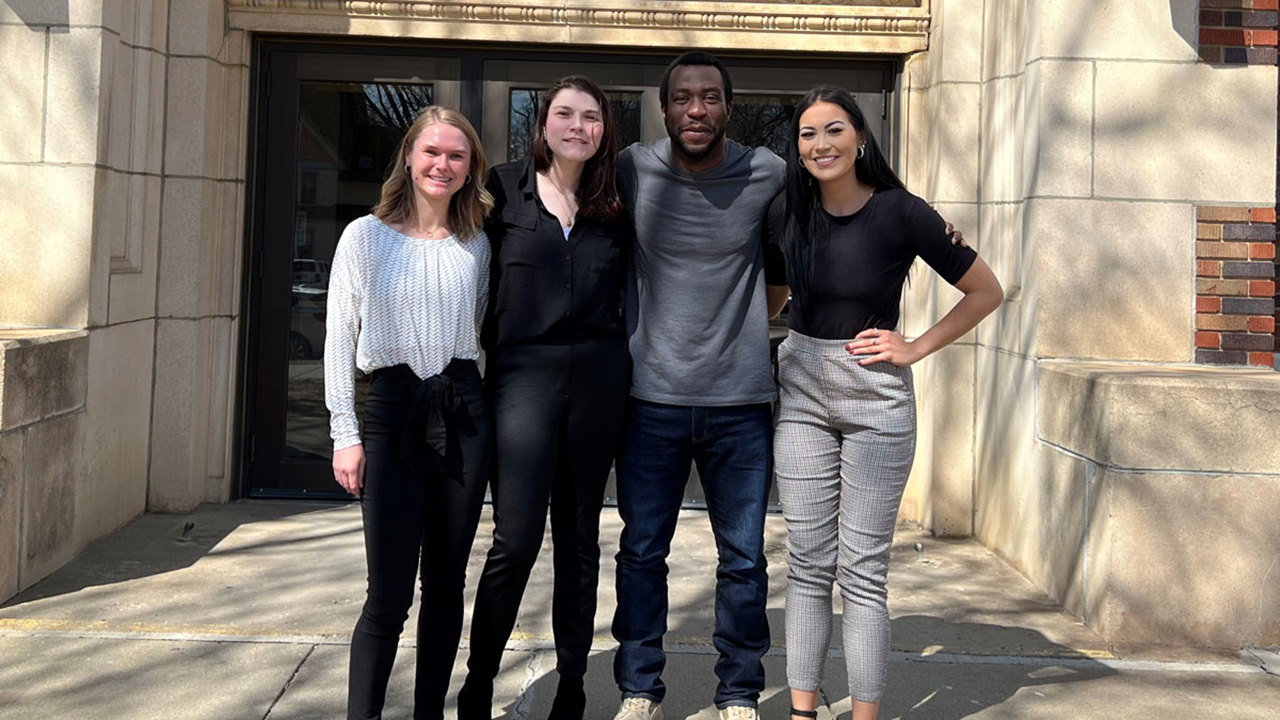Psychology Graduate Students Earn Honor for Wellness App

The student group designed their “Uhealth” health and fitness app for the Mobile Health Applications for Consumers Design Competition at the Human Factors and Ergonomics Society’s 2022 International Symposium on Human Factors and Ergonomics in Health Care, held in New Orleans this spring.
“What made our app different from what’s on the market is we are human factors psychologists, so we implemented a design that had behavior change model that implemented a reward system for daily, weekly and monthly engagement,” said Haley Hoffman, a second-year graduate student on the team. “Ideally that created a more successful product, so users were able to have realistic goals and complete them.”
Hoffman—along with Marc-Antoine Niamba, Megan McCray and Miranda Marron—all study human factors in their Ph.D.-track graduate program at USD. The field of human factors focuses on how humans interact with machines and technology.
Attending the international conference and competing as a finalist in the app competition helps elevate USD’s graduate program in the discipline. “The term human factors is not well known, especially in the Midwest,” said second-year grad student McCray. “Even a lot of our fellow psychology graduate students that are in the clinical program don’t really know what we do.”
When the four students heard about the competition, they set out to take the concepts and theories they learned in class and apply them to an app that motivated and rewarded users to achieve their physical and mental health goals. The team based their app on a goal-setting dynamic theory of behavior that guided users to set appropriate and feasible goals and achieve them through the app’s reward system, goal progression notifications, and motivational tips and reminders.
The first designs were fairly low-tech. “We did a brainstorming session with Post-It Notes for each function that we wanted in the app,” said Marron, a third-year graduate student. “Then we moved on to a paper prototype and then a low-fidelity PowerPoint prototype.”
The next step was the high-fidelity prototype using the design tool Adobe XD. Family and friends tested out the app and provided feedback. The final version presented at the competition featured tracking and rewards for five categories: self-care, fitness, mood, sleep and diet. A further requirement for the competition was to develop a business and marketing plan. Fourth-year grad student Niamba said that task fell outside of the students’ usual studies in psychology. “The most challenging part was the business plan,” he said.
Although the USD group made the three-team final event, the team did not win the competition. The students agreed, however, that meeting other students in the field and professionals involved in user-experience design made the competition more than worthwhile. The project also gave them some new and useful skills.
“I didn’t think I would enjoy prototyping as much as I did,” said Marron. “And I really enjoyed implementing those theories from a class into a project format.”
